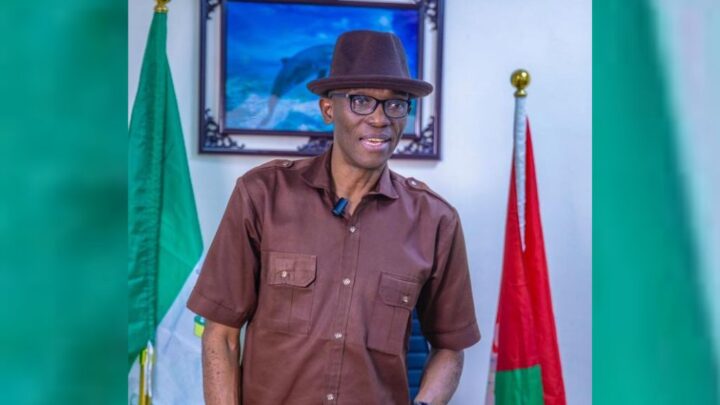ARTICLE AD

Minister of Information and National Orientation, Mohammed Idris.
Nigeria on Monday reaffirmed its commitment to deepening ties with Indonesia, focusing on the untapped economic potential between the two nations.
This was affirmed during the Second Indonesia-Africa Forum, which took place from 1-3 September 2024, in Bali, Indonesia.
The Minister of Information and National Orientation, Mohammed Idris, represented President Bola Ahmed Tinubu at the event.
Idris, in a statement signed by the ministry’s Deputy Director of Press, Suleiman Haruna, participated in the high-level multi-stakeholder partnerships and joint leaders’ session, where he emphasised Nigeria’s dedication to building a stronger partnership with Indonesia.
He stressed that Nigeria is eager to leverage shared strengths in areas such as economic transformation, energy, mining, food and health security, and the digital economy to drive inclusive and sustainable growth.
“The Indonesia-Africa Forum is a catalyst for a new era of cooperation, aimed at propelling both our countries toward a brighter and more prosperous future.
“Nigeria is committed to leveraging our shared strengths and resources to focus on critical pillars such as economic transformation, energy and mining, food and health security, and the digital economy.
“These are the foundations upon which our future cooperation will be built, driving inclusive and sustainable economic growth beneficial to all our nations,” Idris noted.
The forum underscored the economic and demographic significance of Africa and Indonesia, which together account for over 1.7 billion people and a combined GDP of USD 4.4 trillion.
The event brought together heads of state, government officials, business leaders, and stakeholders to explore ways to enhance economic cooperation and address global challenges.
During discussions, Nigeria’s role in advancing the African Union’s Agenda 2063 was a key focus.
Idris highlighted President Tinubu’s ambitious agenda for economic reforms, security, governance, and social development, as well as his leadership in promoting regional trade and stability through the Economic Community of West African States.
Nigeria’s active participation in the African Continental Free Trade Area was noted as a critical driver for boosting intra-African trade and industrialisation.
The event, which featured delegates from 22 African countries and five non-African countries, also paid tribute to the 1955 Asia-Africa Forum, known as the Bandung Spirit, which laid the foundation for Asia-Africa relations.
Participants called for increased trade, investment, and development cooperation between the continents, with an emphasis on Africa transitioning from a raw material exporter to a production hub.
Specific attention was given to the trans-Saharan gas pipeline projects involving Nigeria, Algeria, and Morocco.
The Indonesia-Africa Forum serves as a strategic platform to bolster economic ties between Indonesia and African nations.
The forum facilitates dialogue, fosters partnerships, and promotes sustainable development through collaboration in key sectors such as trade, investment, energy, and the digital economy.

 2 months ago
23
2 months ago
23 

